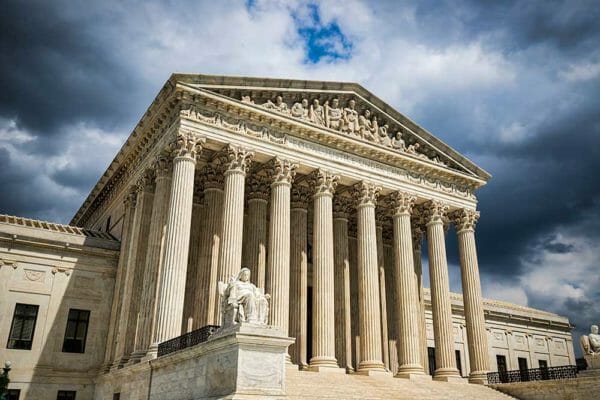
On August 8, 2023, the Supreme Court of the United States, in a 5-4 decision, granted an emergency to the Biden administration in the case of VanDerStok v. Garland.
The case centers around whether the ATF of the Biden administration correctly followed administrative procedure while creating the “Final Rule on a change in the definition of what constitutes a firearm, firearm receiver, or firearm frame, as defined by the Gun Control Act of 1968 (GCA 1968. The United States Court of Appeals for the Fifth Circuit had refused to grant the stay, on the grounds the Biden Administration was likely to lose the case. The case is sent back to the Fifth Circuit for oral arguments. From the Supreme Court:
Application (23A82) for stay presented to Justice Alito and by him referred to the Court is granted. The June 30, 2023 order and July 5, 2023 judgment of the United States District Court for the Northern District of Texas, case No. 4:22-cv-691, insofar as they vacate the final rule of the Bureau of Alcohol, Tobacco, Firearms and Explosives, 87 Fed. Reg. 24652 (April 26, 2022), are stayed pending the disposition of the appeal in the United States Court of Appeals for the Fifth Circuit and disposition of a petition for a writ of certiorari, if such a writ is timely sought. Should certiorari be denied, this stay shall terminate automatically. In the event certiorari is granted, the stay shall terminate upon the sending down of the judgment of this Court. Justice Thomas, Justice Alito, Justice Gorsuch, and Justice Kavanaugh would deny the application for stay.
The oral arguments at the Fifth Circuit are scheduled for September 7, 2023. They will be held at the En Banc Courtroom in New Orleans.
The case is framed as a procedural case to determine if the ATF of the Biden Administration properly conducted the procedure to create a new definition of a “firearm,” firearm receiver, or firearm frame, within the power granted to them by Congress in the Gun Control Act of 1968, as modified by the Firearms Owners Protection Act of 1986. The Fifth Circuit held the ATF did not follow the proper procedure and went beyond its authority when it changed the definitions in the “Final Rule.”
The emergency stay was granted by a 5-4 decision where Chief Justice Roberts and Justice Amy Comey Barrett sided with the three far-left justices to vote in their favor. Justice Thomas, Justice Alito, Justice Gorsuch, and Justice Kavanaugh voted against giving the stay. This is not good news for Second Amendment supporters.
The pleading by the Biden administration was full of emotional means-ends speculation about the horrible harm “ghost guns” are doing, when in fact, such harm is minimal at most. The difference a few tens of thousands of guns without serial numbers might make is very small compared to the hundreds of millions of current firearms which are unregistered and already in the American private stock of firearms.
One argument some justices may have found plausible is the idea that “ghost guns” represent a significant technological change that must be dealt with outside the current legal structure. It is true that guns are easier for amateurs to make today than they have been previously. To credit this idea, one must accept the idea the Second Amendment disfavors individuals making their own arms rather than purchasing them commercially. Alternatively, the old Progressive notion of changing the Constitution by judicial fiat comes into play.
The case is far from over. The stay will remain in place until the case is disposed of in the Fifth Circuit Court of Appeals. If the case is appealed to the Supreme Court, which seems likely, the stay will remain in place until the Supreme Court accepts or refuses the case.
About Dean Weingarten:
Dean Weingarten has been a peace officer, a military officer, was on the University of Wisconsin Pistol Team for four years, and was first certified to teach firearms safety in 1973. He taught the Arizona concealed carry course for fifteen years until the goal of Constitutional Carry was attained. He has degrees in meteorology and mining engineering, and retired from the Department of Defense after a 30 year career in Army Research, Development, Testing, and Evaluation.

from https://ift.tt/TmWwEdB
via IFTTT

No comments:
Post a Comment